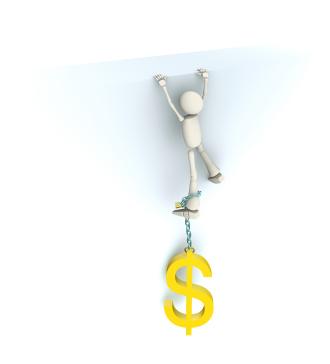Readers have been eagerly awaiting the launch of library lending for Kindle books since Amazon first mentioned looking into the program. While Barnes and Noble’s Nook reader has already granted libraries licenses to check out its eBooks, Amazon has been playing catch up. After an announcement in April that the program was coming, the beta version arrived in more than 11,000 libraries in late September of 2011.
 What’s this? EBooks from the library?
What’s this? EBooks from the library?
Libraries have long since moved past just offering book-books to customers. First it was the addition of newspapers and magazines. Then came books on tape, and later the audiobook program OverDrive. Now eBooks have joined in using the OverDrive program platform.
Part of the reason this works for libraries has to do with space and cost. Libraries have never had enough space to stock all of the books that you want to read. They worked around this with library lending programs, but these programs didn’t fully account for the costs of moving books around, storing books, and repairing damaged books. With eBooks, though libraries still have to purchase digital copies every so many readers, the space issue is gone and the costs of storage and repair are minimal. At the same time, customers perceive that their libraries are offering them more, helping the library industry as a whole stay in business.
What all do I need to make this work?
To take advantage of the Kindle library program, you only need three things. First, you need a library that partners with the OverDrive delivery system for electronic media delivery – about 11,000 libraries nationwide are members, so your odds are good on one being close to you. Next, you need a valid library card. Finally, you need any one of Amazon’s Kindle readers, as the library program works for all accounts.
To get a book, you visit your library’s web site and look up the book that you want. Along with regular check out options, if there is a Kindle copy of the book you want available, there will be a link for you to “Get for Kindle.” With a few clicks to link your library card to your Amazon Kindle account, you can be reading your new book on your Kindle without having to actually physically go to the library at all.
How long can I keep the book?
One key question that needed addressed when presenting the Kindle plan to libraries and publishers was how long readers could keep the book. Publishers still wanted to get paid for having put out the book, and having a book that never wore out and could be endlessly duplicated wasn’t appealing to their bottom line. As a result, libraries are allocated a certain number of “copies” of each eBook. Those copies “wear out” just like a physical book would after a certain number of readers.
Since the library-lending model for Kindle has built in a virtual book wear-out and quantity limit program, check out periods are limited as well. After two to three weeks, the book must be returned to the system. The exact time period for checking out an eBook and return policies are governed by your individual library.
What happens if I don’t bring it back?
With eBooks, the big question is how to bring it back or otherwise limit the ownership period for you as a library patron of the eBook. After all, with physical books there would be late fees if books were not returned. With most digital books, the means for “returning” the book is to deactivate the copy that has been linked to your Kindle. When your borrowing period is over, the book can no longer be read.
It’s not a perfect system, but for Kindle fans it is an exciting development. EBooks on the Kindle can be quite convenient, but they can be expensive to buy. Borrowing eBooks helps libraries save costs and serve readers, and for Kindle lovers, it can also represent more books to read at no additional cost.
And again, this system has already been available for some time for other eBook readers. If you have a Nook, Sony Reader, Kobo eReader, or the like, access to eBook lending exists for you too. The process is a little different but equally as simple, so check with your local library to see if eBook lending is available. If not, you may want to encourage them to look into it!
©2011 Off the Grid News










